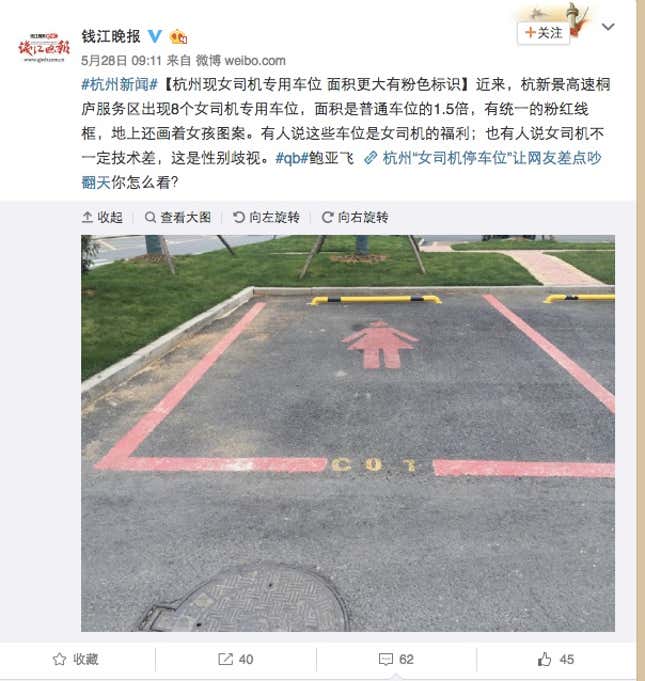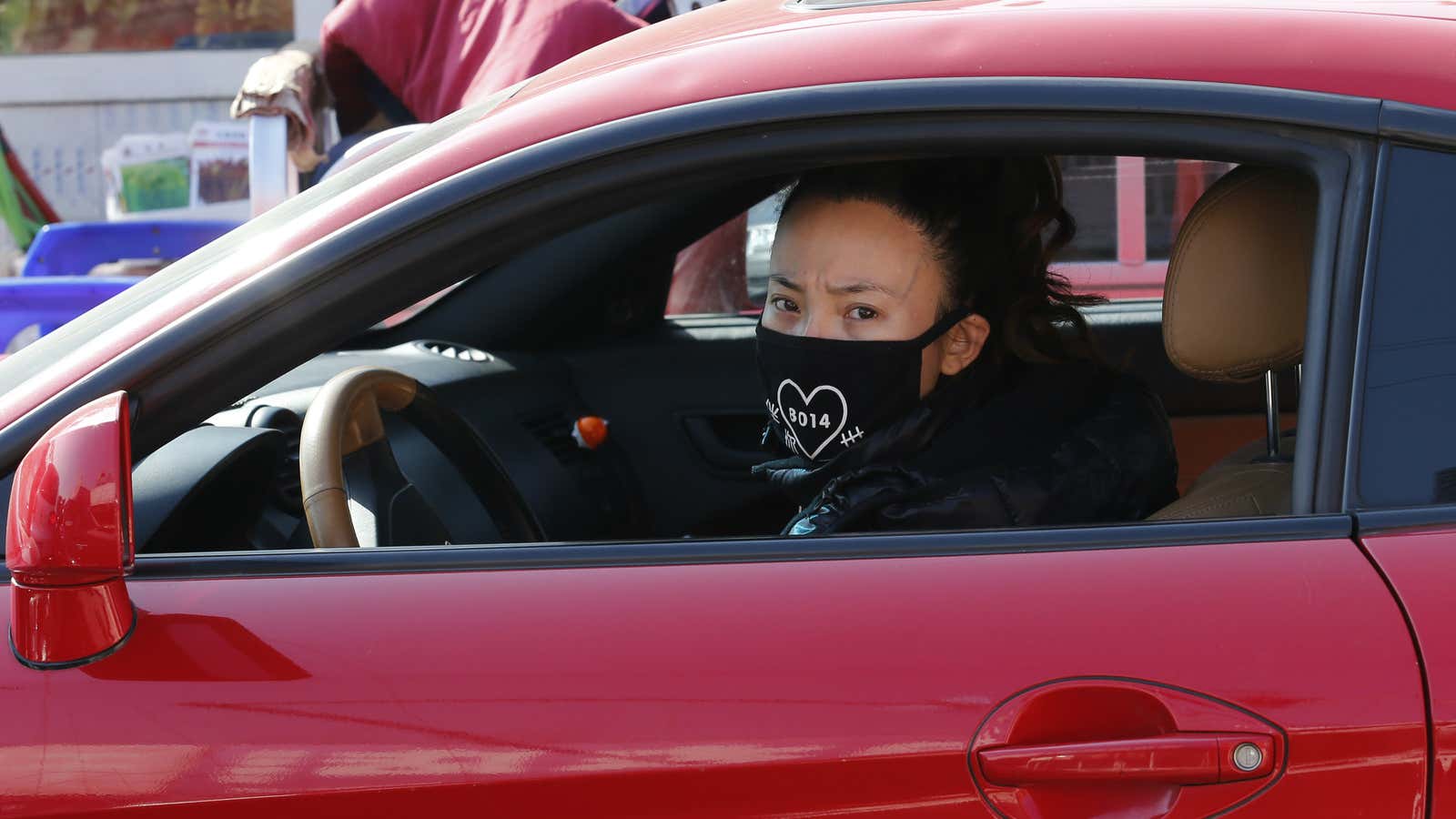As the US debates gender-neutral restrooms, China is mulling the pros and cons of introducing gender-specific parking spaces.
The management of the Tonglu Service Area, located along the Hangxinjing highway connecting Zhejiang province to Jiangxi province in China’s southeast, has created extra wide parking spots specifically for female drivers, sparking outrage among Chinese internet users.
The spots are outlined in pink paint and feature the universal symbol for “woman”—a floating circular head atop a triangular dress— in the middle.

The female-only spaces are 50% larger than ordinary spaces in the lot. At the moment, there are 8 such parking spots in the entire rest area, which consists of about 370 spaces total.
Pan Zhuren, director of the service area, told China’s Qianjiang Evening News (link in Chinese) that he decided to create the parking spaces after observing female drivers having trouble reversing, or parking too carelessly, which in turn disrupted the order of the lot.
“Yes, these are parking spaces ‘customized’ for women. It’s part of [a set of] measures we’ve introduced to humanize the service area,” Pan said.
The female-only parking spots have been in the lot since March, but garnered national attention after Chinese internet users shared pictures of them on social media this weekend. Some expressed outrage at Tonglu, calling the parking spaces a form of prejudice. “True respect for women entails letting women enjoy the same rights as men,” wrote one user on Sina Weibo, China’s answer to Twitter.
Others were unfazed. “This female driver doesn’t think it’s discrimination, it’s obviously just to be considerate. If you think it’s discrimination, just go park in an ordinary parking spot,” another commenter wrote on Weibo.
Female-only parking spaces are not new in China. They’ve appeared outside malls in Chongqing, Shanghai, Shijiazhuang, and Dalian, as well as in rest stations in Sichuan province (links in Chinese).
They’re not unique to China, either—but usually in other countries they have to do with women’s safety, not driving skills. Seoul introduced female-only parking spots across the city in 2009, though they’re not wider than ordinary spaces, they’re just located closer to shop entrances. In parts of Germany, they’ve been around since the nineties, as part of an initiative to reduce sexual assault.
While women are sometimes accused of being bad drivers in China, they’re actually much safer behind the wheel than men. A study in the Iranian Journal of Public Health reports that road traffic accident mortality rates are three times higher for men than women in China, regardless of location, age, or income level.
